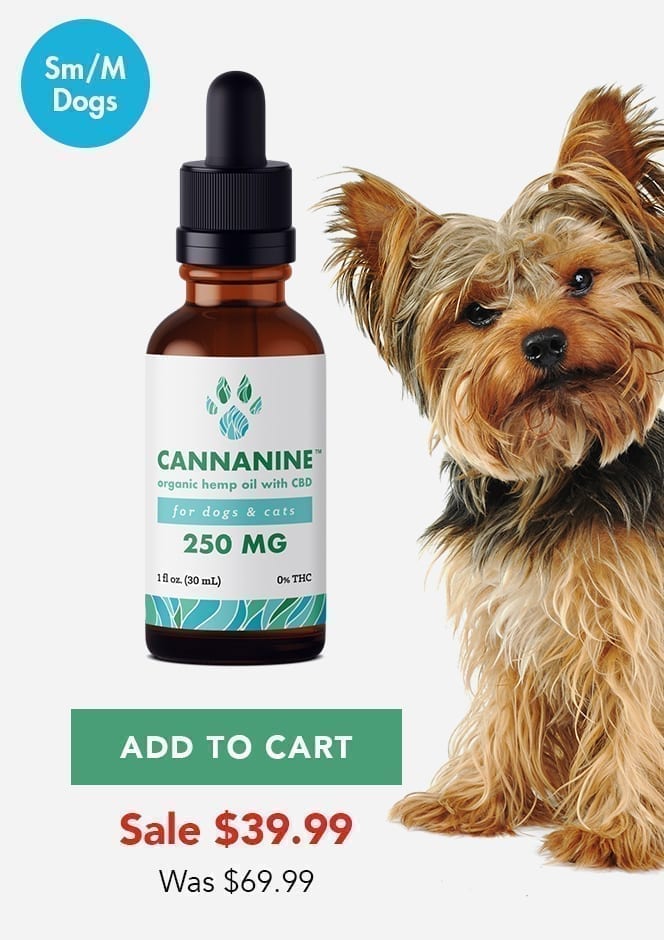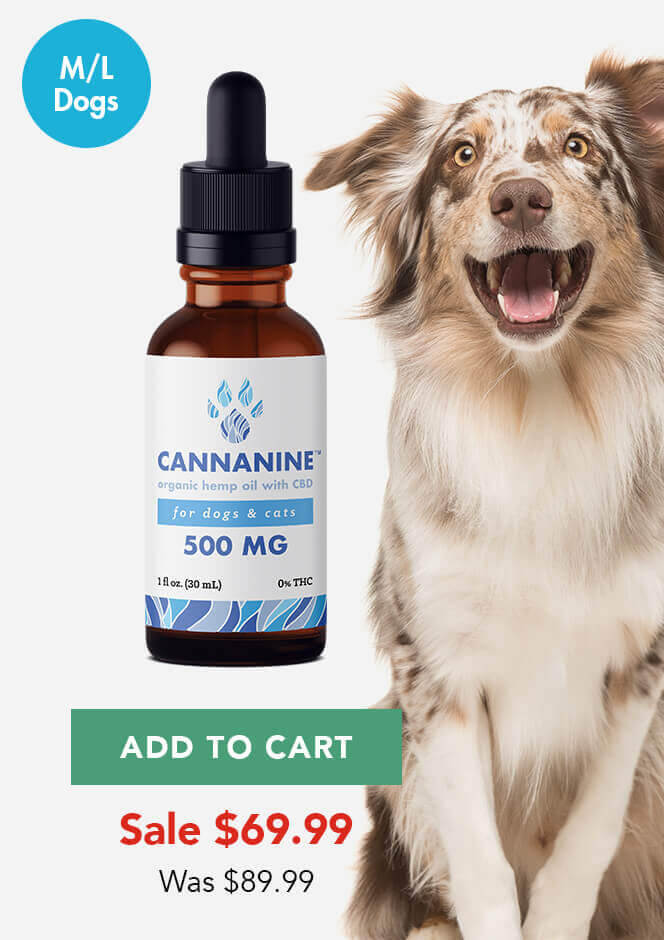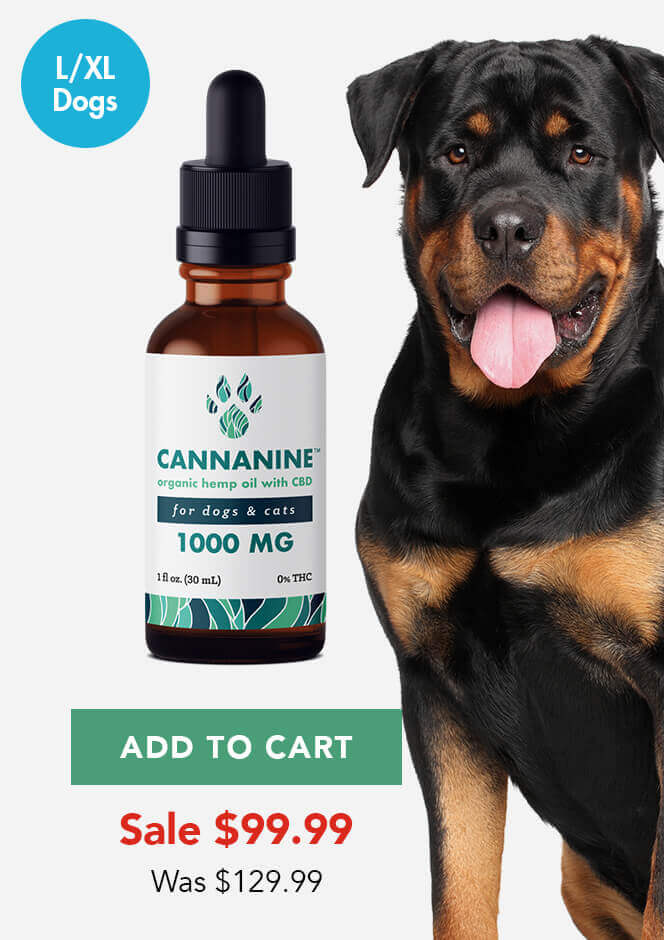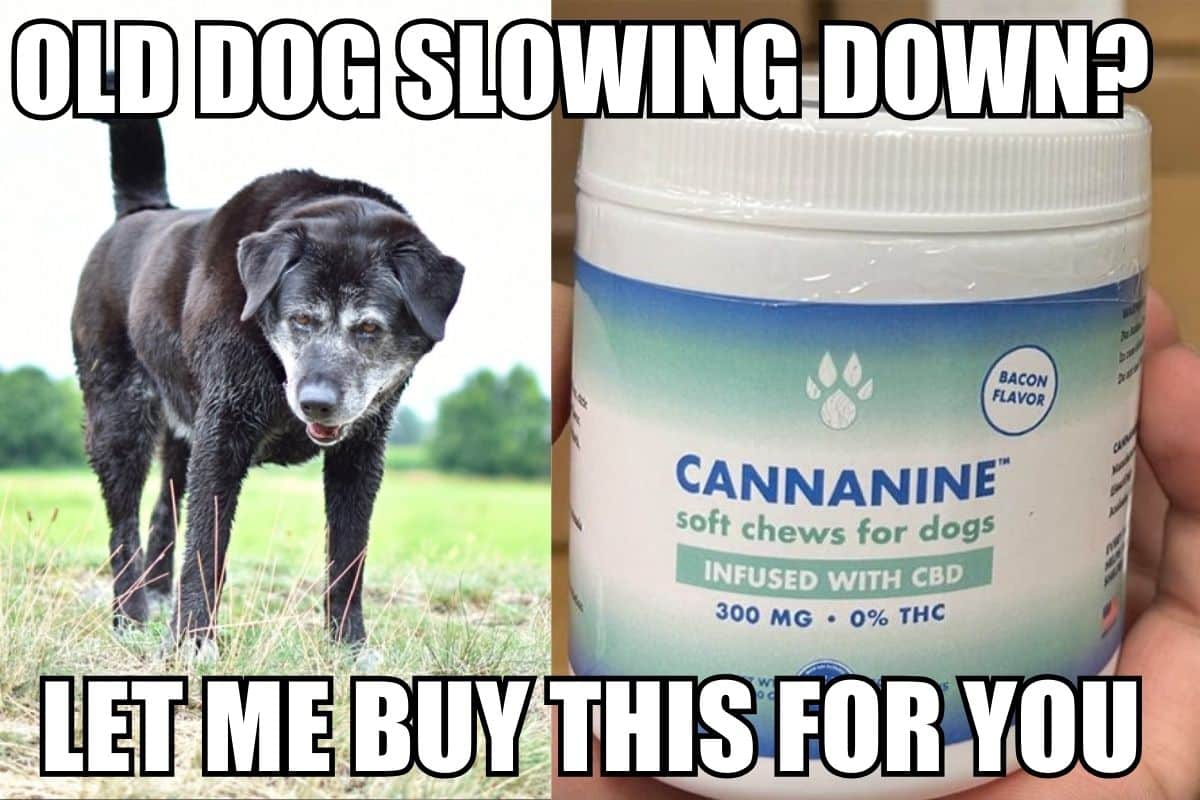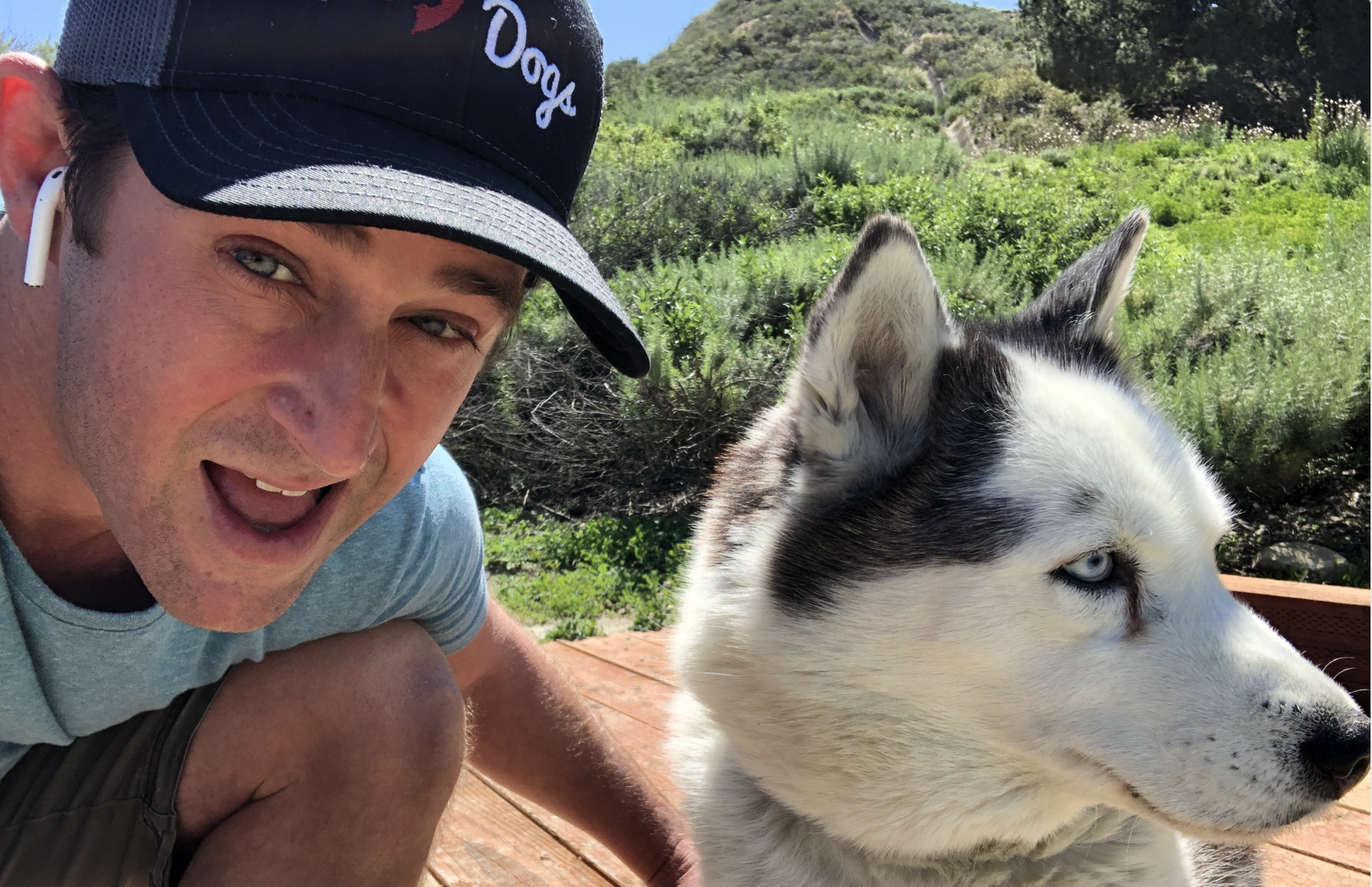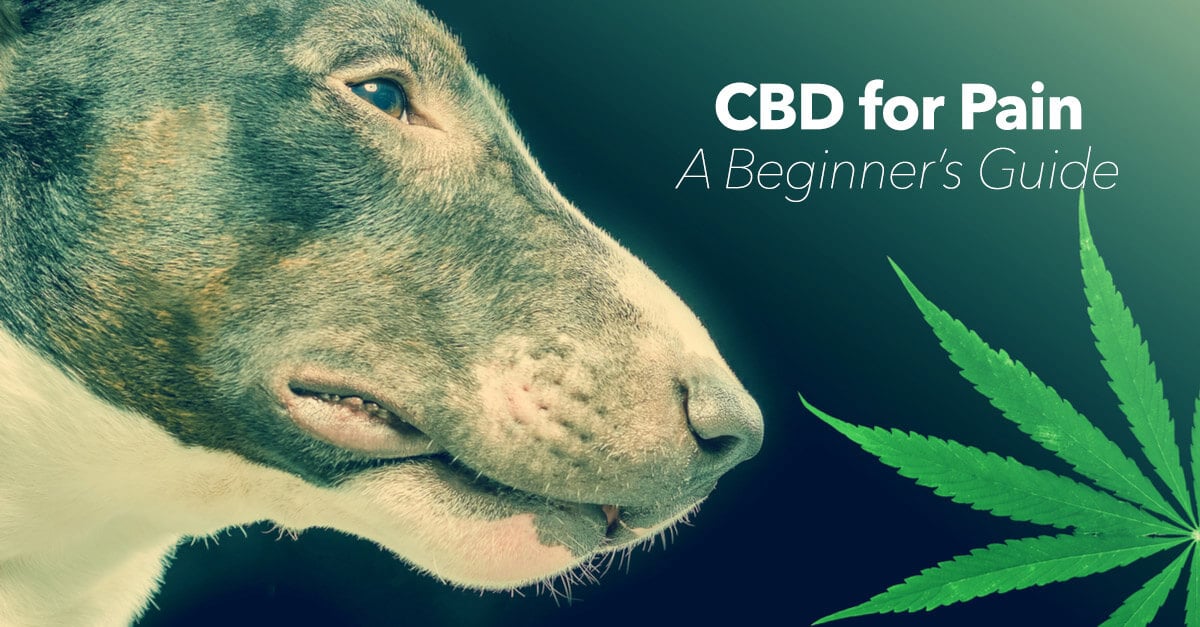
CBD and Gabapentin For Dogs: Can Dogs Take CBD and Gabapentin?
Gabapentin vs CBD Oil for Dogs
In the last 2 years, the popularity of cannabidiol (CBD) has exploded in popularity for dog owners seeking to manage pain & anxiety. CBD is often touted by some as a miracle drug, capable of curing nearly any ailment. The truth, however, is much more nuanced and while the industry is plagued by unrealistic promises for using CBD, actual research backed science is emerging that shows great promise for this hemp based compound.
In this beginner’s guide, we’ll introduce you to canine pain management using CBD. We’ll cover topics on the safety and legality of CBD, what scientific studies have shown, the success rates of using CBD on dogs, and choosing a quality product. We’ll conclude with a list of resources where you can learn more about CBD.
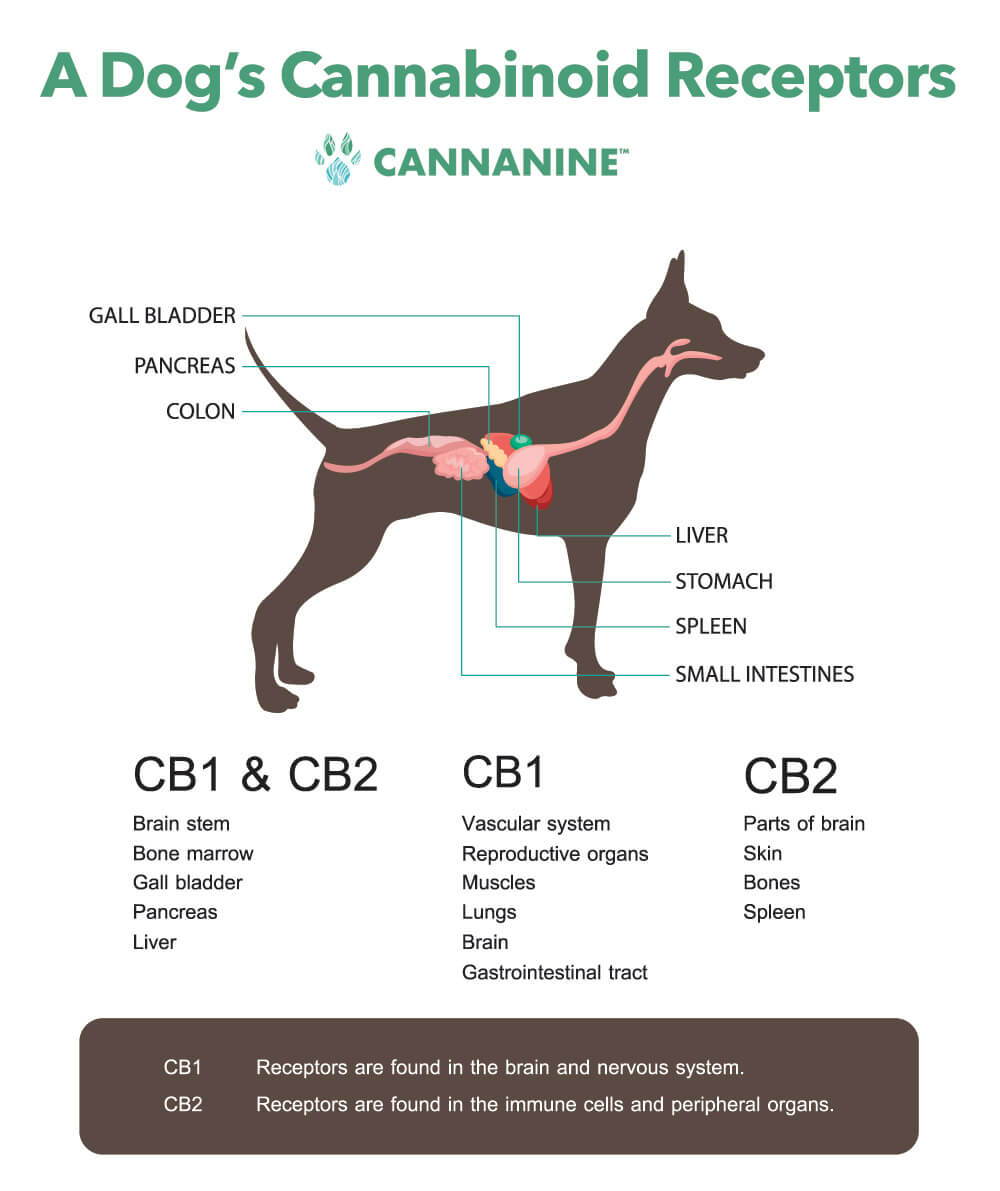
How CBD Works In Your Dog’s Body to Modulate Pain
The endocannabinoid system (ECS) is an interconnected chain of receptors found in your dog’s brain, their nervous system, glands, and organs. Scientists don’t fully understand the ECS yet (it was only first discovered in 1992) but its believed to help maintain balance within the body.
All mammals—humans, dogs, and cats included—rely the ECS system to regulate immune response. CBD oil interacts with the CB1 and CB2 receptors in your dog’s body and acts as a natural neuroprotective agent with multiple health benefits. The cannabinoids in the oil open up two-way communication between endocannabinoid receptors to allow the body to either increase or decrease the immune response as needed. CBD oil is the natural way of regulating the system to maintain the perfect balance.
The reason CBD seems to help modulate pain is that many dog’s bodies are deficient in cannabinoids. Supplementing with CBD increasing cannabinoids in the body and restores balance to the ECS system.
RELATED: 10 Myths Regarding CBD Oil and Dogs
Is It Safe To Use CBD and Gabapentin to Manage Pain for Dogs?
In 2016, Colorado State University completed a pharmacokinetic and safety study of CBD on healthy dogs. This was the first clinical trial to demonstrate that the cannabidiol compound was absorbed by the dogs and measurable in the blood. The study suggests that CBD usage in dogs is safe enough to warrant more studies. Source
For the study, 30 healthy dogs were given 2 different dosages CBD in 3 different methods of delivery: capsules, an oil tincture, and a cream applied on the skin. The results showed that CBD given orally as a tincture was best absorbed and bioavailable to the body. (This is why we recommend buying CBD in a tincture as your first choice).
What Scientific Studies or Clinical Trials Have Been Done on CBD for Pain Management for Dogs?
In addition to the safety and absorption study mentioned above, 3 clinical trials have recently concluded with promising results. It’s important to note that the we’re still in the early stages of understanding how CBD interacts with the body, and much more research needs to be done:
1. Cornell University: Osteoarthritis Pain Reduction in Dogs: Cornell University researchers found that CBD supplied by ElleVet Sciences increased comfort and the activity of dogs suffering from arthritis, according to a study published in July of 2018. This clinical study suggests that 2 mg/kg of CBD given twice daily can help increase comfort and activity in dogs with osteoarthritis. Source
2. Liberty Leaf: CBD Research Study on Canine Pain Management: In August of 2018, results from a randomized, placebo-controlled clinical trial demonstrated that dogs with diagnosed osteoarthritis receiving a daily dose of only 0.3 mg per kg of a CBD-infused oil formulation for 4 weeks showed reduced pain and improved functional performance.
3. Colorado State University: Reduction in Seizures for Dogs with Epilepsy: For 24 weeks, dogs that experience at least two seizures a month received either CBD oil treatment or a placebo. Preliminary results released in July of 2018 showed that a 89% of the dogs studied showed a drop in regular seizures.
How Successful is CBD At Managing Canine Pain?
iHeartDogs commissioned a survey that was completed by 455 people who gave CBD to to their dogs. The following data represents the responses of dog owners who gave CBD for pain management:
Survey Question: How effective do you feel the product was for your dog’s condition?
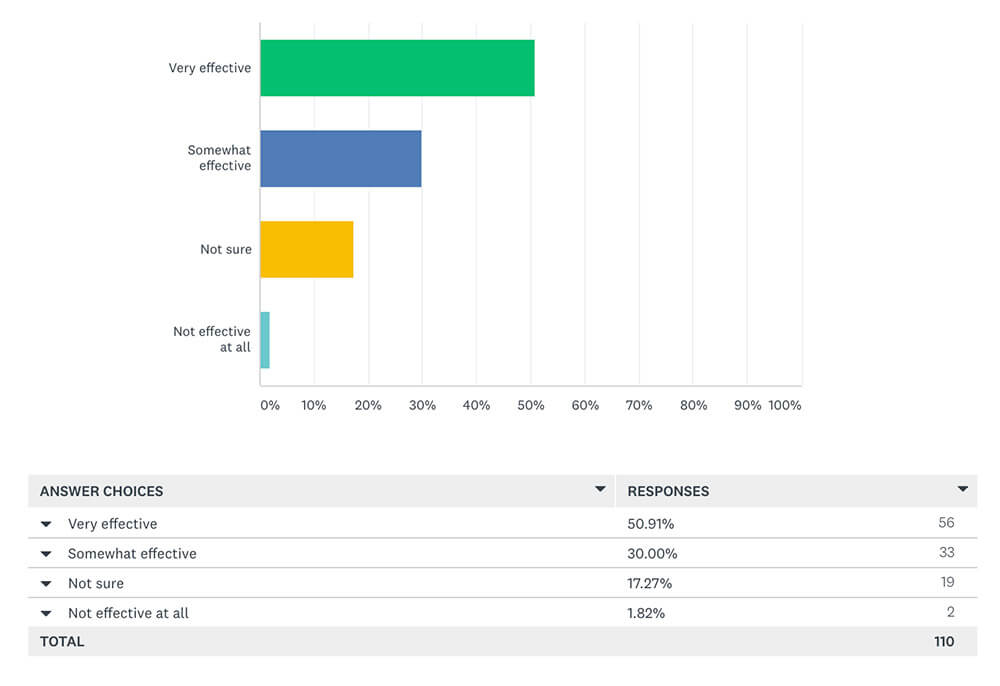
You can view the full survey results here.
How to Choose a Quality CBD from Hemp Product for Your Dog
Choosing a high quality CBD product can be confusing since the market is currently exploding and your options appear endless. Unfortunately, many brands do not perform 3rd party batch testing on their products to ensure the efficacy and purity.
We’ve put together a buying guide for CBD, containing 8 things to watch out for before making a purchase. You can receive the CBD Oil Buying Guide by by requesting it below:
What Real Dog Owners Say After Using CBD for Their Dog’s Pain
We asked members the iHeartSeniorDogs Facebook community for their experience with using CBD to alleviate their dog’s pain:
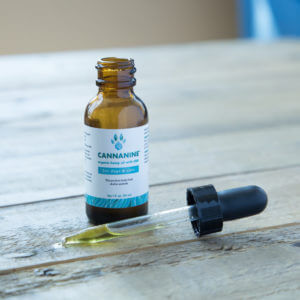
CBD has done wonders for our 11 year old Roti. You have to be very careful not to give them too much THC so choose your CBD carefully – Ken Tress
A lifesaver! I truly believe I would’ve already had to put her to sleep if not for it. – Suzanne Stanfield
The best thing I have ever done for my 200 pound Old English Mastiff was CBD oil she is 7 and we rescued her at 3 yrs old she was kept in a crate for 22 hours a day so she has terrible joint discomfort… so I medicate her 2 times a week and she runs and plays with my 2 puppers!! – Janell Michelle Cody
It’s been two weeks for our 13 year old pug and his hips are shot. His energy is back now, not jumping from pain when I pet him and is happy again. If I hadn’t tried this CBD oil I wouldn’t have believed it. Been a God send for my ole guy. I highly recommend it. Beats giving him pain meds which takes his spirit away. – Susan Johnson-Smith
I purchased Cannanine CBD oil for my two Bull Terriers for two different reasons. One is 8.5 yrs old and has joint issues. After a couple doses 1 per day there was an amazing improvement. She is up and playing and running around with my 2.5 yr. old. My 2.5 yr old is very excitable and we bring them both to our Sean soak campground. I tried it on her for calming effects. It seems to hit her the next day. Still experimenting with this. But for my 8.5 yr old it has brought back her quality of life. – Ann Fyfe
Some dog owners use CBD, but in addition to other supplements or prescription medications:
CBD and Gabapentin For Dogs
My dog is on Gabapentin along with CBD. No problems. – Mary Mueller
My dog is on Gabapentin and uses a 300mg cbd. It’s Really made a difference. He is 11. – Gene Sorensen
Good option but definitely not 1st line. Glucosamine Chondroitin MSM combo with Turmeric is a better 1st line options. Add CBD if this combo is not fully working by itself. –
My dog was on carprofen (generic rimadyl) and gabapentin for his joint discomfort. When I started him on cbd oil, I started with a much lower dose than what was recommended. Too much cbd too fast may cause issues like drowsiness or loose stool. While the cbd oil gradually increased, the other meds gradually decreased. As someone mentioned, it’s best to wean your dog off gabapentin slowly, don’t stop abruptly. My boy is only taking the cbd oil now and he is doing quite well. He even runs a little and he hasn’t run in years! Good luck with your pup! – Barbara Kalman LaVista
I am using Cannanine cbd oil along with turmeric paste. I couldn’t be happier with the results. – Pam Smith
Other dog owners saw results, but also had a few mild side-effects:
Fang (our 120lb..13 year old lab): has been on CBD oil for about 5- 6 weeks now and we’ve seen a noticeable improvement in his joint pain and overall movements. He’s able to walk up our 5 stairs with NO help and at times even takes off rather briskly up them. As of today, I would highly recommend CBD oil for older dog joint pain. We have noticed an increased appetite which has been a bit of a problem since he’s always had a rather enormous Lab appetite. We just focus on keeping his food intake the same to avoid weight gain…he can be a tiny bit hungry to be pain free. – Sinéad Daly Heath
One User’s Story: CBD for a 12 Year Old Immobile Dog
The Only CBD Oil Recommended by iHeartDogs.com
We worked hard to create the Cannanine brand of CBD Oil. In addition to containing nano-sized emulsion (best for absorption) the formula is 100% THC free, which is relatively rare but very important for animal use.
Learn more about our Hemp Oil with CBD here.
Choose The Right Relief For Your Pup
100% Money Back Guarantee
PLUS Up To 40% Off When You Shop Today






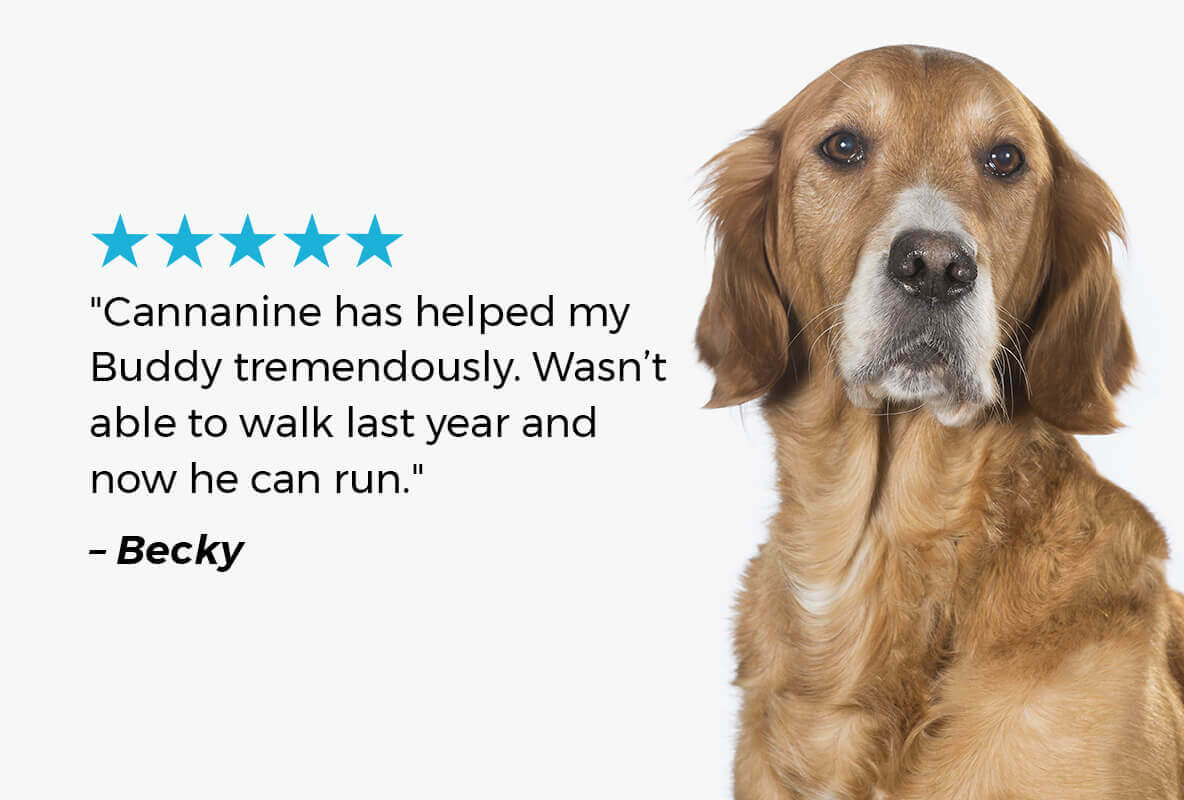
Popular Articles On CBD For Dogs
- How CBD Oil Can Help Reduce Your Dog’s Excessive Barking
- How Long Before CBD Oil Starts Working for My Dog?
- How Often Can I Give My Dog CBD Oil?
- How Long Do The Effects Of CBD Oil Last For Dogs?
- What Are Possible CBD Side Effects For Dogs?
- Top 5 Ways To Administer CBD Oil To A Dog
- How CBD Oil Can Increase Your Dog’s Appetite And Prevent Nausea & Vomiting
- How CBD Oil May Help Your Dog Sleep Better
- Can CBD Oil Help Your Dog’s Anxiety and Nausea In The Car?
- 4 Reasons Senior Dog Owners Are Flocking to CBD Oil
- CBD Oil and Gabapentin Dogs
- CBD Oil Tinctures vs. CBD Treats for Dogs: Which Is Better?
Additional Resources: Where Can I Learn More About About CBD & Pain Management?
- The Ultimate Guide to CBD Oil for Dogs (Cannanine)
- CONSUMERS’ PERCEPTIONS OF HEMP PRODUCTS FOR ANIMALS (AHVMA)
- Rimadyl: Is There a Natural Alternative for My Dog? What Are The Dangers & Side Effects? (Cannanine)
- Pharmacokinetics, Safety, and Clinical Efficacy of Cannabidiol Treatment in Osteoarthritic Dogs (NIH)
IMPORTANT: The information on this site is not intended to replace a one on one relationship with your veterinarian. Please do not make any changes to your dog’s medication without first consulting your vet.
These statements have not been evaluated by the Food and Drug Administration. This product is not intended to diagnose, treat, cure, or prevent any disease. The information on this website is not intended to replace a one-on-one relationship with a qualified health care professional.












